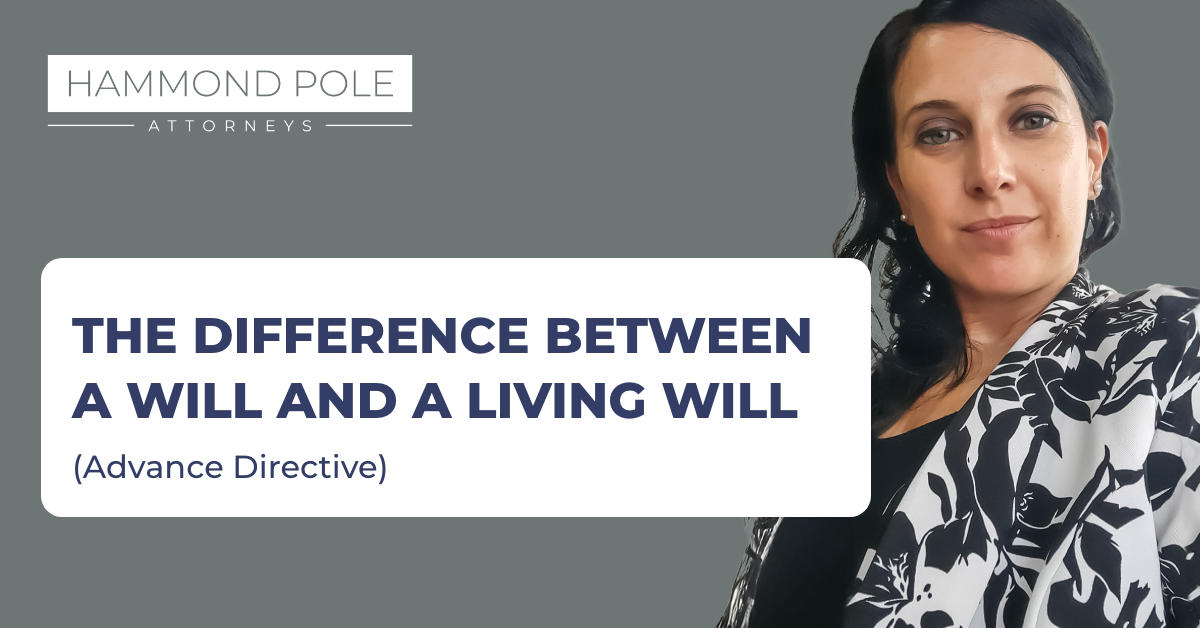The Difference Between a Will and a Living Will (Advance Directive)

Estate planning is often viewed only through the lens of drafting a will. While a will is unquestionably a cornerstone of ensuring one’s wishes are respected after death, it is only part of the picture. Increasingly, South Africans are also turning to living wills—or advance directives—as an important legal tool. Understanding the distinction between these documents is vital, not only for ensuring one’s estate is properly administered, but also for safeguarding dignity and personal choice during life.
A Will: Planning for After Death
A will is a legal instrument that sets out how a person’s estate—comprising property, investments, personal belongings, and even digital assets—will be distributed after death. It allows the testator, you, to nominate heirs, appoint guardians for minor children, and designate executors to administer the estate. Without a valid will, the estate is wound up according to the rules of intestate succession, which may not align with the your wishes.
In short: a will ensures clarity after death, reduces disputes, and provides a structured legal framework for estate administration.
A Living Will (Advance Directive): Planning for Life
A living will, sometimes referred to as an advance directive, is different. It does not deal with property or inheritance. Instead, it is a written declaration of a person’s wishes regarding medical treatment should they be unable to communicate, often in circumstances of terminal illness or permanent incapacity.
Typically, a living will set out whether an individual consents to or declines life-prolonging treatment, artificial ventilation, or resuscitation. Its purpose is to protect autonomy and dignity in healthcare decision-making, sparing families the anguish of making such choices in moments of crisis.
Why the Distinction Matters
The key difference is this:
- A will speaks after death.
- A living will speaks while you are still alive, but incapable of expressing your wishes.
Both documents therefore play complementary roles. One ensures your assets are protected and distributed in accordance with your intentions; the other ensures your medical choices are respected during life.
Importantly, while living wills are not yet expressly codified in South African statute, they are recognised and upheld in practice. Having one drafted and stored with your attorney ensures your voice is heard, even when you cannot speak for yourself.
The Hammond Pole Perspective
At Hammond Pole, we are Serious about Service. Estate planning is not a once-off task—it is a continuum that encompasses both financial legacy and personal autonomy. Our role is to guide clients through the nuances of both wills and living wills, ensuring that each document is carefully drafted, valid, and aligned with their values.
We believe thought leadership in this space means not only providing technical expertise but also shaping the broader conversation about dignity, family, and future planning. In doing so, we help our clients protect both their assets and their humanity.
Conclusion
A will and a living will are not interchangeable—but together, they provide a holistic approach to planning for life and beyond. By recognising the importance of both, individuals can reduce uncertainty, prevent conflict, and protect what matters most.
Hammond Pole stands ready to advise, draft, and support. Because when it comes to estate planning and personal choice, we are serious about service.

